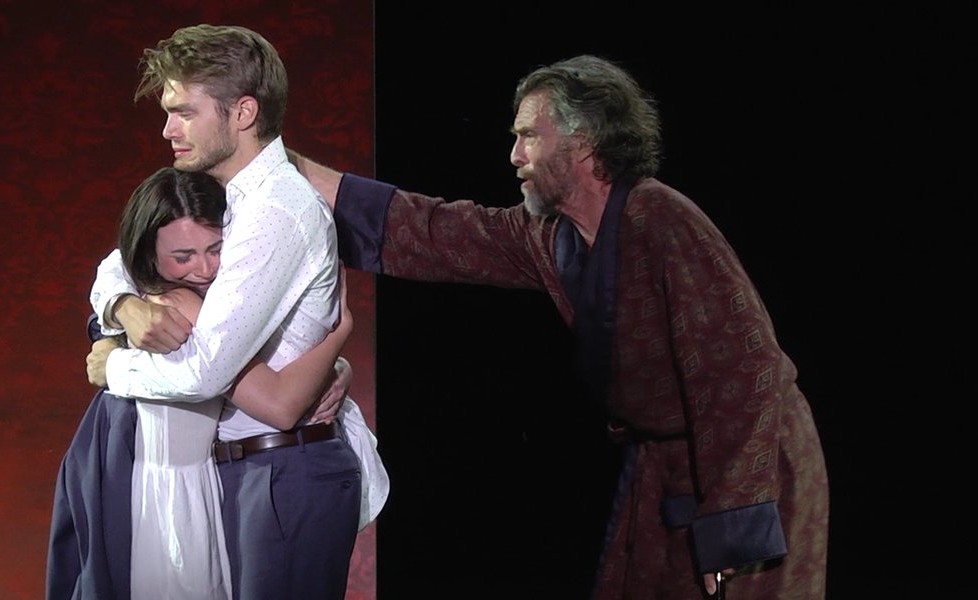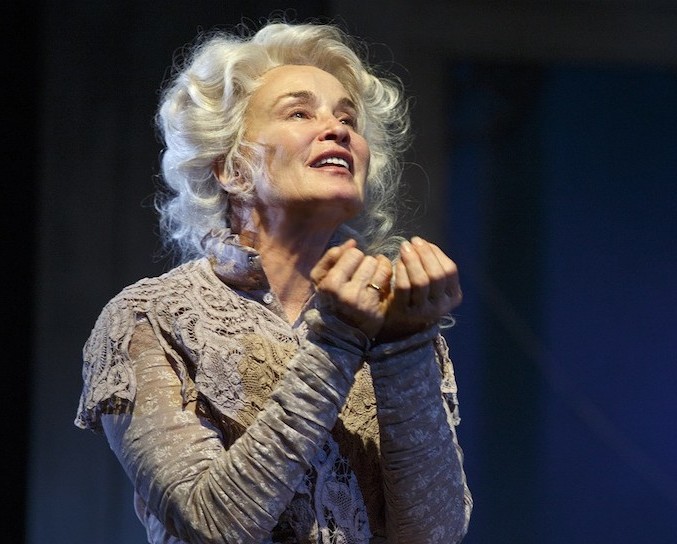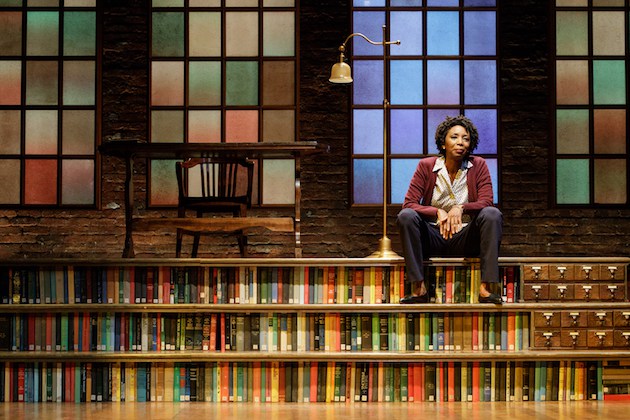

by JK Clarke
Judging by the last couple of seasons of the free Shakespeare in the Park productions at the Delacorte Theater in Central Park, it seems the Public Theater—and Director Daniel Sullivan, more specifically—has become remarkably adept at taking William Shakespeare’s most notoriously inaccessible and less-than-perfect plays and turning them into scintillating productions. Last summer it was the seldom seen Cymbeline that wowed audiences. This year it’s the problematic tragedy of Troilus and Cressida, the play that isn’t sure, on paper, what it wants to be. It’s up to a great director to guide this piece, and Sullivan handles it craftily, like that other Sully landing an Airbus in the Hudson. Aided by a powerful cast, he makes the opportunity to see this Shakespearean also-ran an unmitigated delight.
Completed around the same period (1602) as some of the Bard’s better loved works, like Hamlet and Othello, Troilus and Cressida is a like a mashup of Romeo and Juliet and The Iliad. Set in the midst of the Trojan War, it’s the story of political/military intrigue as well as of the ill-fated titular lovers, though without the interdepencies that the Capulet v. Montague conflict lends to Romeo and Juliet. With the war at something of a stalemate, both sides seek a means to settle the conflict once and for all. A battle between the two sides’ finest warriors is proposed, but the Greeks’ champion, Achilles (Louis Cancelmi) has had enough of war and would rather stay in his tent with his lover Patroclus (Tom Pecinka). Troy’s valiant Hector (Bill Heck), a chivalrous fighter, is finally matched against the brawny, yet moronic Ajax (Alex Breaux, reprising the not-as-dumb-as-you-think moron he played in Red Speedo (NYTW)—if there’s ever to be a Keanu Reeves biopic, no one is better suited for the role than Breaux). They fight. Hector triumphs, but he cannot kill his kin, and lets him go.
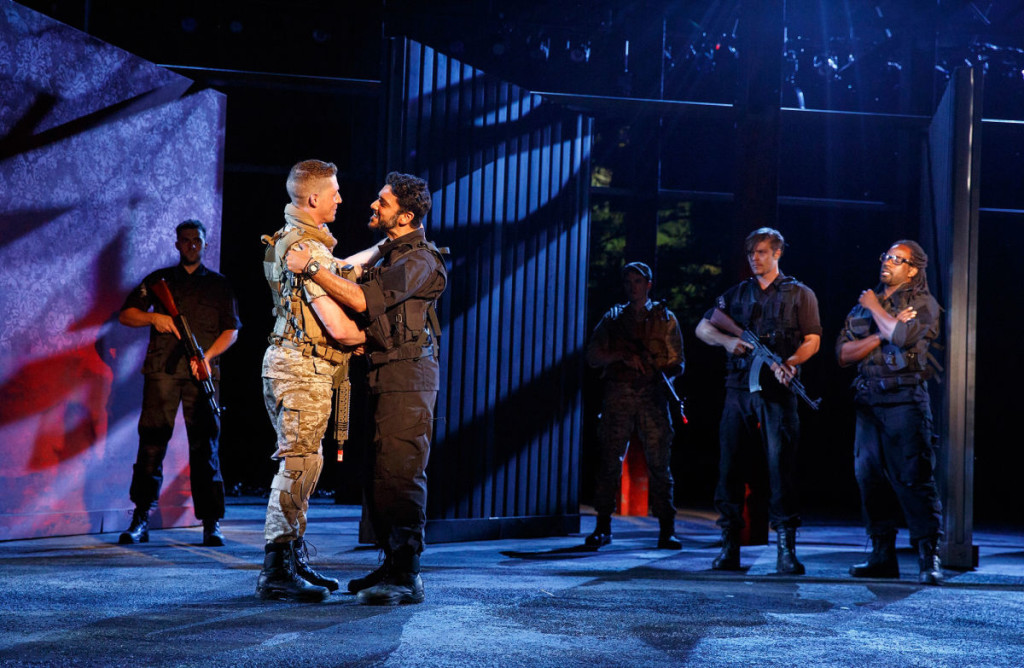

Meanwhile, Cressida’s uncle, Pandarus (the remarkably talented John Glover who steals every Shakespeare play he’s in, no matter how secondary the part), pushes her together with Troilus (Andrew Burnap), knowing the two love each other from afar. At first awkward, when they finally confess their feelings to one another there could be no match more tender. Ismenia Mendes’s Cressida is heartbreaking and sweet in her earnest and giddy love. There’s nary an audience member who doesn’t want to be the object of her affection. Which makes her downfall all the more tragic.
In one of the play’s complicated wrinkles, Cressida—the daughter of a Trojan priest who has defected—is traded to the Greeks for a captive Trojan soldier, despite both the lovers’ objections. But Troilus is a Trojan soldier first, and his brothers have negotiated this ransom. When Troilus spies Cressida “making nice” with her captor Diomedes (Zach Appelman), he becomes enraged and rejects her. Herein lies the play’s tragedy and ambiguity. Though some productions portray Cressida as unfaithful and wanton, Sullivan has construed the action here to suggest that Cressida is doing all she can to survive amongst her captors and avoid sexual violence. In this instance it is Troilus who lacks sympathy and understanding. His loss, truly.
Meanwhile, the fighting begins anew and in a move engineered by the Machiavellian Ulysses (Corey Stoll), Patroclus is killed, thereby enraging Achilles, who briefly fights Hector, then backs off as he has his men brutally murder the defenseless warrior. Chivalry, apparently, is not the domain of the victors. Much is left unresolved at the end, with Troy defeated, the lovers apparently estranged and Pandarus wishing venereal disease on the audience.
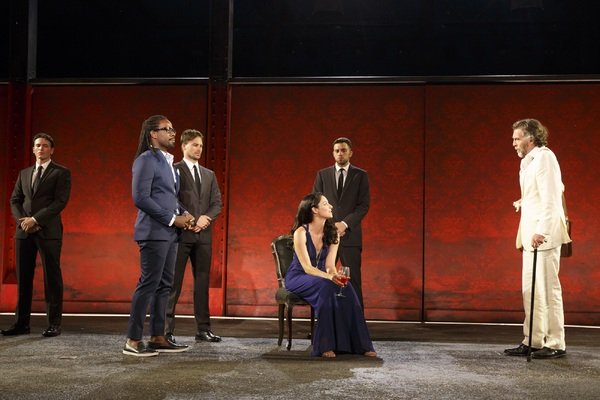

It’s not really the story, then, the grabs us in this production. Rather, smartly set in the present with the combatants dressed more like an inner-city riot police squad than soldiers, and with a brilliantly simple yet versatile set (David Zinn, who also designed costumes), that alternates—via rotating wall panels—between an elegant state room and the corrugated steel walls of a military installation, we are thrust into the interpersonal problems being played out. Robert Wierzel’s energetic lighting and Mark Menard’s sound design bring the realistic fight scenes to life, with machine gun fire erupting often enough to make us feel as unsettled as the combatants.
Ultimately, it’s the (almost universally) stellar performances that make the play what it is. Though performing relatively minor roles, John Douglas Thompson (Agamemnon), Edward James Hyland (Nestor), Maurice Jones (Paris), and the already mentioned Heck and Stoll bring an intensity and vibrance that cement the play’s credibility. In the role of the war-weary cynical clown (there’s one in every Shakespeare play), Max Casella’s Thersites is a wise-cracking, own ass-saving smart aleck with a Brooklyn twang, adding just the right level of comic relief. And Louis Cancelmi, who was wonderful in last year’s production of The Tempest, has done an admirable job as a last-minute replacement for the more appropriately butch David Harbour who (no joke) snapped his achilles tendon during a preview performance in July.
Unfortunately this terrific production ends this weekend. But with the forecasted hot, balmy weather, and that it’s a lesser known play, the determined might just have some success on the free ticket line. Considering how seldom this play is produced and how well it’s done, it’s worth the wait.
Troilus and Cressida. Through August 14 at The Delacorte Theater (Central Park near 81st Street and Central Park West entrance). www.publictheater.org
Photos: Joan Marcus


